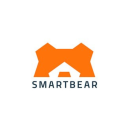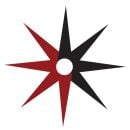In the age of AI, having women in tech leadership is mission-critical.
As more of the world relies on AI systems, the design of those models becomes a widely used blueprint. A study from Berkeley found that out of 133 AI systems, 44 percent showed gender bias. When gender bias is left unchecked in foundational models, it can impact everything from whose resume gets flagged for recruiters to what credit limit a person receives.
Putting women in tech leadership roles isn’t the same as waving a magic wand to upend the status quo, but it does ensure that they are a part of key business decisions that could have long-term industry impact.
Looking to break into tech leadership yourself? Read on for advice from five women leaders who have advocated for equality throughout their careers.
WHOOP is a wearable healthtech company. The tech team uses AI to help with tedious tasks and increase their overall performance. Software engineers at WHOOP work across DevOps, MLOps and back-end development.
Describe your career journey so far. What skills and experiences have you acquired along the way that have helped you get to where you are now?
My career started in dentistry, where I learned how to make decisions with incomplete information and how to build trust through empathy and communication. Over time, I began to question how healthcare decisions were made and why evidence didn’t always reach the bedside. That curiosity pulled me into research, where I learned to think in systems, how to test ideas, design studies and connect data to outcomes. It also taught me patience, collaboration and the value of precision.
The next turning point came when I started attending conferences and lectures in the Boston innovation community and realized how quickly ideas could move when medicine, engineering and technology came together. That exposure opened my eyes to a new way of solving problems and eventually pushed me into the world of startups and digital health leadership.
There, I learned how to translate science into products, navigate regulation and build multidisciplinary teams that could turn ideas into impact. Each step gave me new skills, but the most important ones stayed constant — staying curious, learning fast and helping people from different backgrounds work toward a shared goal.
What support did you receive from individuals and/or resources that helped you step into a leadership role?
A turning point was a healthcare hackathon, where I showed up to pitch ideas and met the founder of VideaHealth. He convinced me to take my first industry role, even though I had never worked outside academia or hospitals. I was terrified but curious and that curiosity changed everything. Once I joined, I made it a point to learn fast and volunteer for projects outside my comfort zone. I spent evenings learning about artificial intelligence, evaluations, coding and business strategy. That habit of seeking out what I didn’t know became the foundation for how I lead today.
Mentors, peers and communities also played a huge role. The Boston startup ecosystem and women in tech networks gave me access to stories and support from people who had taken similar leaps. Friends, colleagues and my partner helped me separate fear from fact and encouraged me to take risks with intention. Over time, I learned that leadership is less about waiting to be chosen and more about choosing to step forward. Identifying skill gaps, finding ways to close them and surrounding yourself with people who push you to grow. That mindset has stayed with me in every role since.
How do you encourage other women on your team to become leaders themselves? Are there any stories you can share that showcase how you’ve done this?
Mentorship shaped my own path, so I make it a priority to pass that forward. At WHOOP, I’ve worked with several women through internal programs and within my own team and I’ve learned that creating the right environment is as important as any single piece of advice. Growth happens when people feel trusted enough to try, supported enough to learn and safe enough to fail.
One approach I use comes from medicine: “see one, do one, teach one.” I walk through my reasoning openly, let my team make decisions and then encourage them to mentor others. It builds both confidence and accountability. One scientist on my team joined us post-PhD, unsure whether she belonged in tech. Over time, she took ownership of projects, presented her findings to senior stakeholders and recently returned to her alma mater to speak about her journey as a woman in science!
I make sure my team knows that growth isn’t about perfection; it’s about progress and shared responsibility. When people feel safe to take risks, they start leading naturally and that’s where the real transformation begins.
Workhuman provides SaaS HR solutions that help companies meet today’s biggest human capital challenges.
Describe your career journey so far. What skills and experiences have you acquired along the way that have helped you get to where you are now?
I’ve always been fascinated by what drives people and how organizations build lasting relationships with their clients. That curiosity led me to software-as-a-service and service-based businesses over 20 years ago, where I discovered my passion for helping companies deliver exceptional client experiences through strong strategic partnerships. Over time, I’ve learned that grit, curiosity and collaboration are the skills that make the biggest difference. Grit keeps me focused through challenges; curiosity pushes me to explore new ideas and uncover opportunities others might miss; and collaboration ensures we build something stronger together.
I’ve also learned the importance of balancing drive with groundedness. I lead with urgency and high expectations, but also with trust, kindness and transparency. Over time, I’ve learned that extending trust early creates the foundation for others to lead with confidence. Especially in fast-changing, high-stakes environments, I’ve found success in leading with authenticity and care. Leadership, to me, is equal parts grit and grace — the determination to deliver and the humanity to bring others along.
What support did you receive from individuals and/or resources that helped you step into a leadership role?
I’ve been fortunate to work with many great leaders throughout my career, including some truly inspiring women. At every stage and still today, I make it a priority to seek out leaders I admire at all levels of the organization. I ask about their thought process, how they approach challenges and what advice they’d give in tough moments. Those conversations have been invaluable, offering perspective, confidence and new ways of thinking that have shaped how I lead.
I’ve also learned by observing how others handle difficult situations, celebrate wins and make people feel seen. I carry those lessons forward and adapt them to my own leadership style. Leadership will always bring unexpected moments, but drawing on your experiences and the guidance of others helps you make the best decisions in the moment. And when things don’t go as planned, trust yourself to adapt, learn and keep moving forward.
How do you encourage other women on your team to become leaders themselves? Are there any stories you can share that showcase how you’ve done this?
I encourage women on my team to step into leadership by creating space for them to stretch, take risks and own their ideas. I have honest conversations about career goals, share my own experiences including the challenges and advocate for them when opportunities arise.
One example is a high-potential team member who hesitated to lead a cross-functional initiative outside her comfort zone. We broke the project into manageable pieces; I coached her through stakeholder conversations and gave her autonomy to make key decisions. She delivered an outstanding outcome and gained the confidence to pursue bigger opportunities. Watching someone grow into their full potential is incredibly rewarding.
For me, true leadership is rooted in relationships — with clients, colleagues and teams. It’s about fostering a culture of trust, curiosity and shared success. Challenges are inevitable, but they create space to learn, adapt and grow. My hope is that by modeling curiosity, grit and empowerment, I can inspire the next generation of women leaders to step confidently into their potential, knowing they have the support and resilience to thrive.
Simply Business is a digital insurance brokerage that allows small business owners to find and buy the insurance they need.
Describe your career journey so far. What skills and experiences have you acquired along the way that have helped you get to where you are now?
While my path to engineering didn’t begin with a traditional computer science degree, I’ve embraced learning the technical skills through hands-on experience and self-study. I’m endlessly grateful for the experiences I had beforehand — from my time as a journalist and news anchor to becoming a private pilot and working in public affairs for the British Government.
Discovering software development through Launch Academy was the “aha” moment I’d been searching for. My first role at a small Boston startup was pivotal; being in an environment where I had to dive in and take real ownership rapidly accelerated my growth as an engineer. What I didn’t expect was how much my past would inform my future. My ability to communicate and collaborate comes directly from those earlier chapters. And now, I’m grateful to be at a company that truly prioritizes that same spirit of learning and growth. It’s a powerful reminder that a non-traditional path can be the perfect preparation for a career in tech and in leadership.
What support did you receive from individuals and/or resources that helped you step into a leadership role?
When I think about my path to leadership, it always comes back to the people who championed me. I’m incredibly grateful to my colleagues at Simply Business, who have consistently invested in my growth.
A pivotal moment came when I joined our mentorship program as a mid-level engineer. On the application, I wrote, “I want to be a principal engineer someday,” and they paired me with a principal who became a key guide. He challenged me to think beyond my team’s immediate tasks and to approach problems with a more strategic, high-level perspective. That experience didn’t just build my skills; it fundamentally shifted my mindset and gave me the confidence to pursue a lead role.
Beyond that formal program, great managers have been crucial. Having someone who not only supports your ambitions but actively looks for opportunities to help you grow is invaluable. Their investment in me made all the difference.
How do you encourage other women on your team to become leaders themselves? Are there any stories you can share that showcase how you’ve done this?
For me, encouraging other women to become leaders is about demystifying the journey. It’s crucial to create an environment of psychological safety where they know that setbacks are just part of the process, not a reflection of their potential.
I’ve had the honor of mentoring several more junior engineers and there’s often a moment where a problem feels insurmountable or a mistake seems disastrous. In those moments, my first step isn’t to solve the problem for them. It’s to offer a calm presence and share my own experiences with self-doubt. I’ll say, “I have been exactly where you are. I have felt that same panic. The goal isn’t to be perfect; it’s to be resilient.”
Watching someone’s perspective shift from “I failed” to “I’m learning” is the most rewarding part of my job. I carry that principle into my role as co-lead of our Women’s employee resource group, Empower — creating spaces where women can share challenges openly and build each other up. When we normalize the struggle, we empower each other to lead with confidence.
SmartBear provides a portfolio of trusted tools that give software development teams around the world visibility into end-to-end quality through test management and automation, API development lifecycle and application stability.
Describe your career journey so far. What skills and experiences have you acquired along the way that have helped you get to where you are now?
One of my first jobs was at a recruiting agency where I had to make cold calls and negotiate daily. I was shy back then, so this pushed me far outside my comfort zone and showed me what I was capable of. From there, I joined a venture capital firm and eventually one of their portfolio companies, which was a small team. I wore many hats across recruiting, benefits and being a human resources business partner. I said yes to everything, made mistakes and learned lessons I wouldn’t have anywhere else.
A great example of this was when I oversaw compliance and mistakenly classified certain employees as “exempt” when they should not have been. It took a lot of unraveling to fix my errors and I remember going to my manager in tears. They told me I had permission to not know things and ask for help and that kind of changed the way I approached my role from then on.
Over the past 10 years, I’ve worked in fast-growing tech companies, collaborating across teams to build high-performing cultures. My biggest lesson has been to embrace feedback. Early on, I feared “negative” feedback and saw it as criticism, but I’ve learned that honest feedback builds relationships, trust and personal growth.
What support did you receive from individuals and/or resources that helped you step into a leadership role?
I’ve been intentional about working closely with people who can help me become better. That rarely means people who will just share my point of view. These connections helped me level up, because their direct and honest feedback pushed me to overcome challenges and see things differently.
Looking back, one of the chief people officers I worked with taught me a valuable lesson about perception. The first time I went through a 360-feedback process, I felt completely overwhelmed and vulnerable. A peer shared that I came across as passive and I strongly disagreed! When I shared how frustrated I felt, she calmly said, “It honestly doesn’t matter if you agree with the feedback or not. This is how people are perceiving you.” That moment snapped me out of my spiral and completely shifted my mindset. I realized that feedback on my style and leadership wasn’t something to take personally, it was an opportunity to see myself through others’ eyes and grow.
How do you encourage other women on your team to become leaders themselves? Are there any stories you can share that showcase how you’ve done this?
I want women on my team to trust their instincts and have confidence in their decisions, even when the outcome feels uncertain. A few years ago, I worked with a woman who had natural leadership qualities. When I pointed this out to her and noted that colleagues often looked to her for advice, she doubted whether she had the personal brand to be a leader.
I worked closely with her to ensure she received the feedback, visibility and confidence she needed to succeed. Visibility was particularly important. I made space for her to share ideas with the leadership team directly, not through me, so they could experience her as a peer. Today, she’s a strong, respected leader. She just needed someone to remind her of what was already there. It was rewarding to be the one to point the mirror back at her.
Leader Bank offers a range of lending and banking services designed to meet the needs of personal, business and government clients, aiming to be a one-stop shop for financial solutions.
Describe your career journey so far. What skills and experiences have you acquired along the way that have helped you get to where you are now?
Leadership has been a foundational part of my life from an early age. Growing up playing competitive sports from elementary school through college instilled in me the values of teamwork, resilience and leading by example, even when I wasn’t the designated captain. These experiences naturally cultivated leadership skills that I carried into my academic and professional life.
In college, I participated in a development program with three levels of employment. Achieving the top tier of student manager was highly competitive and a pivotal moment in my growth. It gave me hands-on experience managing others and taught me how to lead with both confidence and empathy.
When I joined Leader Bank, I approached my role with a mindset of continuous learning. I aimed to be a sponge — absorbing knowledge not only within my team but across departments. I’ve realized looking back that there are situations that going above and beyond seemed simple in the moment, but became transformative in my career. Holding myself accountable and surrounding myself with people who challenge me to maintain high standards has been key to my development. That drive to make an impact continues to shape my career.
What support did you receive from individuals and/or resources that helped you step into a leadership role?
I’ve been fortunate to have many mentors throughout my journey who have guided and coached me into leadership. One of the most impactful areas where I needed support was building confidence in decision-making. I’ve always held myself to high standards, which sometimes led to self-criticism even when I knew the right answer.
Having mentors who believed in me and encouraged me to trust my instincts, but also knowing when to push me in areas that may seem uncomfortable, made a significant difference. Their support helped me recognize that confident, thoughtful decisions, even those that affect others, are part of growing as a leader. Over time, I’ve learned to lean into my judgment and lead with conviction, knowing that growth often comes from stepping into uncertainty.
How do you encourage other women on your team to become leaders themselves? Are there any stories you can share that showcase how you’ve done this?
Encouraging other women to grow into leadership roles is something I’m deeply committed to and I believe it starts with consistent coaching, mentorship and leading by example. Supporting initiatives that come from within the team is one way I help foster leadership. A standout moment was last year when a colleague proposed hosting a women’s luncheon. The goal was to create space for meaningful conversations among women across the bank. I supported her in bringing the idea to life and we were able to gather representation from different departments and levels of the organization. The event was powerful; stories were shared, connections were made and many left feeling inspired and more confident in their leadership potential.
Beyond events like the luncheon, I dedicate time to mentor women across the organization through regular conversations, brainstorming sessions and guidance. I’ve built relationships based on trust and respect by actively listening and offering support without judgment. These moments are often where the most growth happens. Helping someone see their own potential, navigate challenges and feel empowered to lead is one of the most rewarding parts of my role.














